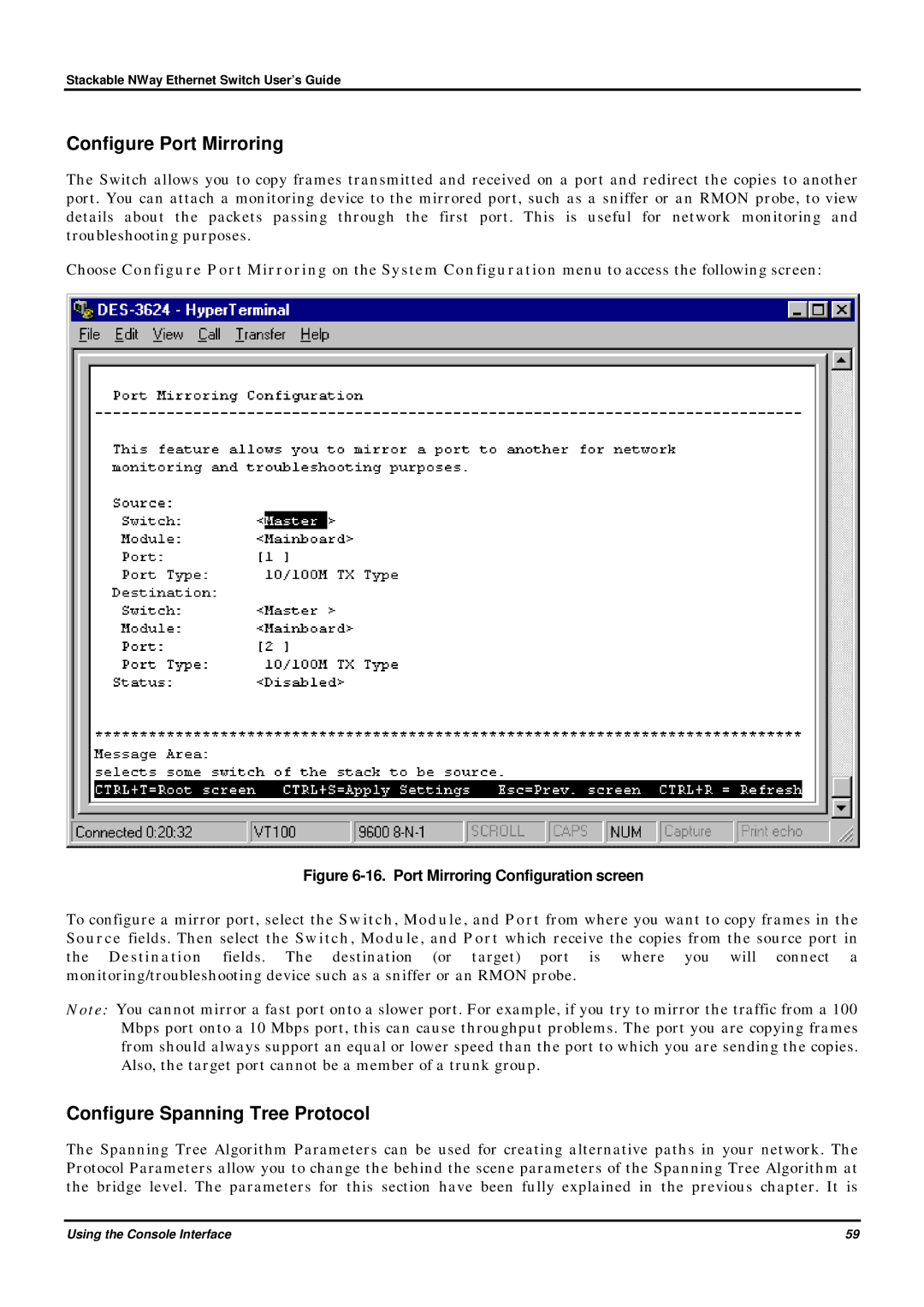
Stackable NWay Ethernet Switch User’s Guide
Configure Port Mirroring
The Switch allows you to copy frames transmitted and received on a port and redirect the copies to another port. You can attach a monitoring device to the mirrored port, such as a sniffer or an RMON probe, to view details about the packets passing through the first port. This is useful for network monitoring and troubleshooting purposes.
Choose Configure Port Mirroring on the System Configuration menu to access the following screen:
Figure 6-16. Port Mirroring Configuration screen
To configure a mirror port, select the Switch, Module, and Port from where you want to copy frames in the Source fields. Then select the Switch, Module, and Port which receive the copies from the source port in the Destination fields. The destination (or target) port is where you will connect a monitoring/troubleshooting device such as a sniffer or an RMON probe.
Note: You cannot mirror a fast port onto a slower port. For example, if you try to mirror the traffic from a 100 Mbps port onto a 10 Mbps port, this can cause throughput problems. The port you are copying frames from should always support an equal or lower speed than the port to which you are sending the copies. Also, the target port cannot be a member of a trunk group.
Configure Spanning Tree Protocol
The Spanning Tree Algorithm Parameters can be used for creating alternative paths in your network. The Protocol Parameters allow you to change the behind the scene parameters of the Spanning Tree Algorithm at the bridge level. The parameters for this section have been fully explained in the previous chapter. It is
Using the Console Interface | 59 |
